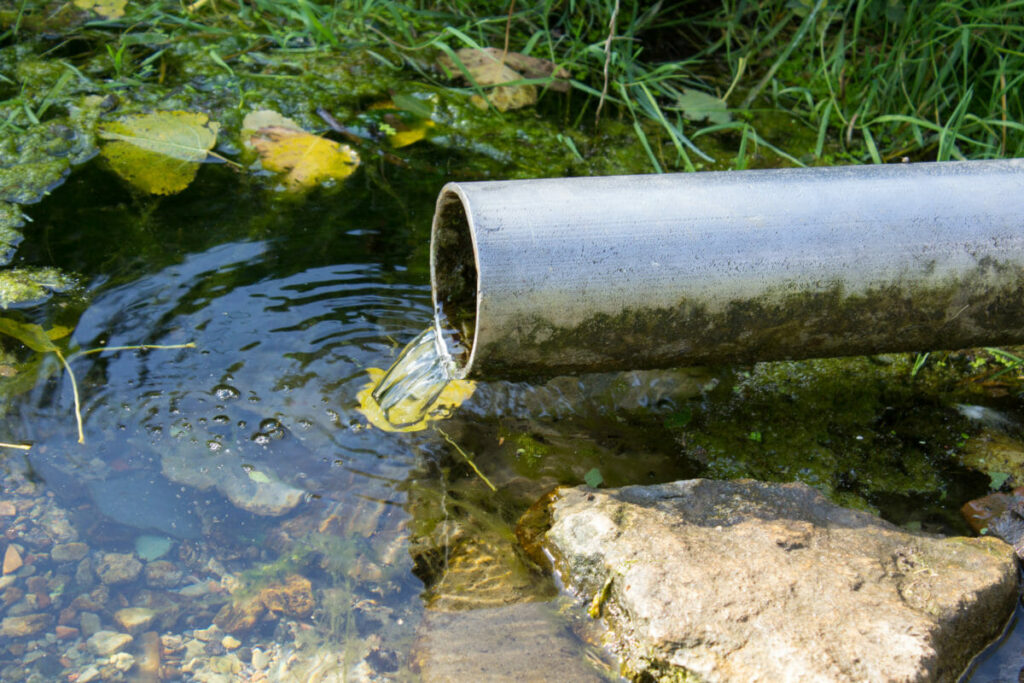Try as you may, you can’t quite figure out why your lawn doesn’t look as healthy as it should. You’ve explored a few different remedies, but nothing seems to do the trick. If this sounds familiar to you, you might be dealing with an unexpected issue: soft water. When used to hydrate your lawn, this kind of water can cause problems that interfere with the growth of greenery. Let’s take a closer look at this potential scenario and identify some simple, practical solutions.
What Is Soft Water?
All water can be classified by its relative level of “hardness” or “softness.” Hard water gets its name because it contains significant amounts of two dissolved minerals, calcium and magnesium. Water in this category may also contain two other minerals, manganese and iron. Soft water, on the other hand, has deficient levels of all four of the hard minerals. However, it does contain substantial amounts of sodium.
Rainwater is naturally soft. The minerals get added in certain locations when rain passes through the soil and becomes groundwater. Municipal systems and wells that access this groundwater will deliver hard water to your taps.
Uses of Soft and Hard Water
Soft water is preferred for indoor use for a couple of reasons. First, the ongoing use of hard water can lead to the buildup of something called limescale. Over time, this hardened substance can accumulate on the inside of your household water lines. As a result, your normal water flow and water pressure might be lacking. The presence of hard water also disrupts the natural lathering ability of soaps and detergents. In turn, the lack of proper lathering action can lead to poor dish cleaning and stiffer, less comfortable clothes.
Hard water does have a couple of notable advantages. The minerals it contains are widely recognized as beneficial for the support of good health. Also, this type of water tends to taste better than its soft counterpart. For these reasons, hard water is often preferred for drinking purposes.
Soft Water’s Impact on Your Lawn
Given all this, you might wonder why problems can occur if you water your lawn with soft water. There are two answers to that question. First, certain types of greenery don’t react well to high amounts of sodium exposure. Since soft water contains plenty of sodium, its regular use can lead to spotty or absent growth. The negative impact of watering with this kind of water reaches its highest levels in areas with little rainfall. That’s true because lack of rain can leave salt deposits lingering on your lawn for extended amounts of time.
Also, when exposed to the sodium in soft water, certain types of soil become more resistant to water penetration. This issue can lead to an inadequate moisture supply for your lawn. Clay soil, in particular, becomes harder to penetrate when you use soft water. This is important to note in the Southwest, which has an abundance of such soil.
Addressing the Negative Effects
So, what to do if you live in an area with soft water? Experts recommend a straightforward solution: treating your lawn with an agricultural-grade version of the mineral gypsum. This mineral provides its benefits by making it easier to eliminate any accumulations of salt deposits. To get the best results, apply 2.5 lbs of gypsum to every 100 square feet of your lawn twice yearly. You can find suitable versions of the mineral at home improvement centers and gardening or feed stores. Some professionals suggest aerating your lawn at the same time for better soil penetration.
You also have another option for diminishing the damaging impact of soft water. Just increase the amount of water you use during each watering session. This works because a heavier flow of moisture will help keep salt deposits from occurring. However, be aware that higher water use may increase your utility bill and lead to the waste of a precious resource.
Talk to an Orange County Plumber
As you can see, soft water has its uses. However, it may not be the best option for watering your lawn. If you have questions about the relative hardness of your water supply, just call your local plumbing experts in Orange County at Biard & Crockett. In addition to water testing, your plumbing specialists can also assist you if you have a water softener installed on your property. A switch of the minerals used in that softener may be all you need to address the situation.

